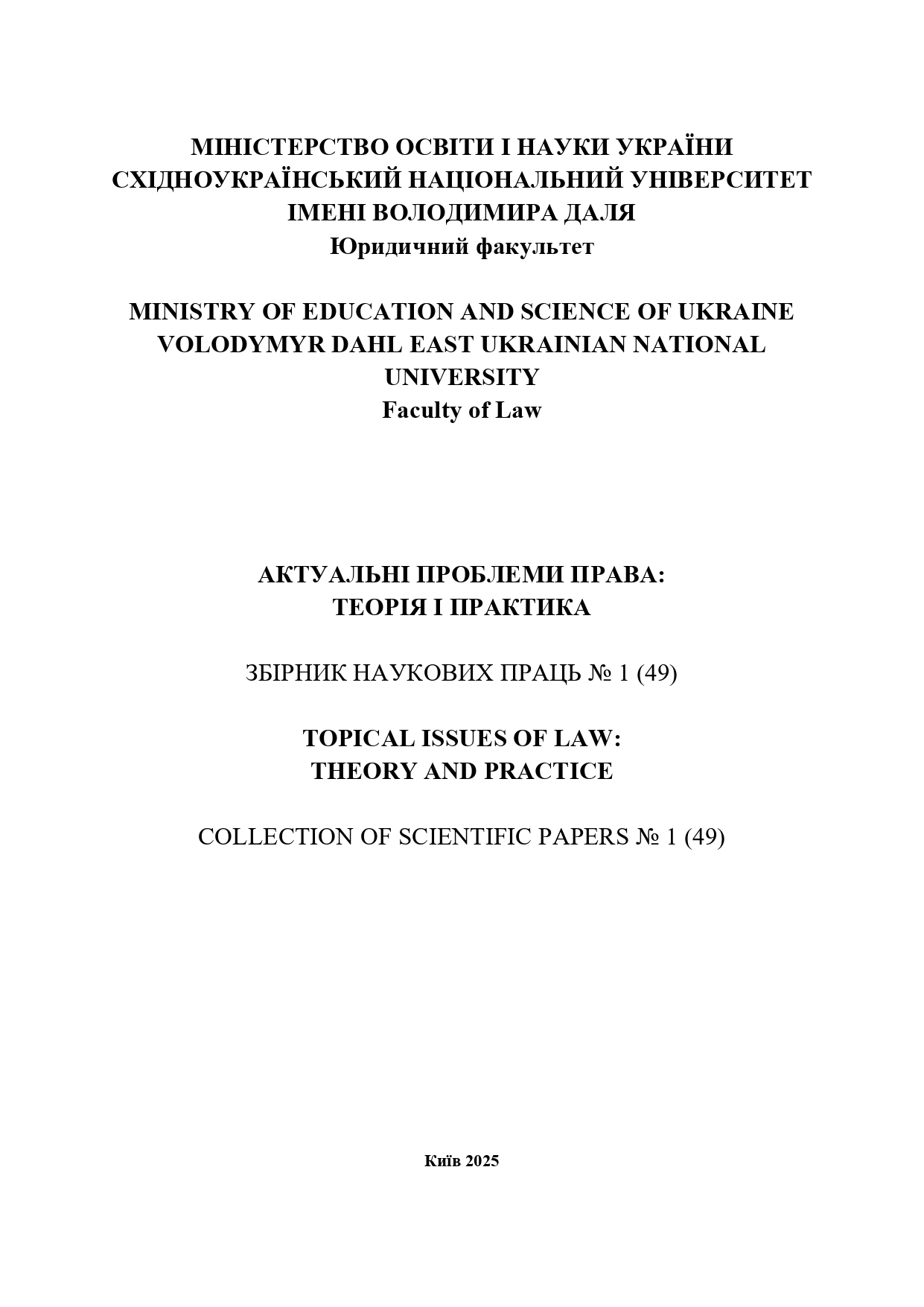INTERNATIONAL LEGAL REGULATION OF THE PROTECTION OF ARCHAEOLOGICAL HERITAGE DURING ARMED CONFLICT
DOI:
https://doi.org/10.33216/2218-5461/2025-49-1-291-302Abstract
The article is devoted to a comprehensive
analysis of the international legal and national legal
aspects of the protection of archaeological heritage
during armed conflicts. The main areas of the research
include the study of international legal instruments, in
particular the 1954 Hague Convention for the
Protection of Cultural Property in the Event of Armed
Conflict, its 1954 and 1999 Protocols, the provisions
of the 1977 Additional Protocols to the Geneva
Conventions, United Nations resolutions, the Statute
of the International Criminal Court, as well as other
UNESCO documents regulating the protection of
cultural heritage during hostilities. Significant
attention is given to the analysis of Ukrainian national
legislation governing the field of protection of cultural and archaeological heritage, particularly the Law of
Ukraine «On the Protection of Cultural Heritage», the
Law of Ukraine «On the Protection of Archaeological
Heritage», and the provisions of the Criminal Code of
Ukraine establishing criminal liability for war crimes
against cultural property. Special focus is placed on
the study of the issues of implementing international
standards into the national legal system, as well as the
practical analysis of specific cases of destruction,
damage, and illegal removal of archaeological sites
during the armed conflict in Ukraine from 2014 to
2025. The article examines scientific approaches of
Ukrainian and foreign researchers to the protection of
cultural heritage in wartime conditions, identifies key
legal challenges and contradictions in the field of
heritage protection. As a result of the study,
conclusions have been formulated and legal recommendations proposed to improve national legislation and practical mechanisms for the protection of archaeological heritage during armed conflicts.
Keywords: archaeological heritage; armed conflict; international humanitarian law; 1954 Hague Convention; Rome Statute of the ICC; cultural property; war crimes; international responsibility.

